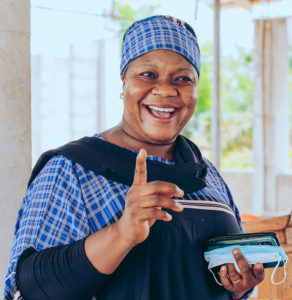The emergence of neoliberalism has led to dire consequences for women and other marginalized groups. Today, citizens, especially women, are coerced to sacrifice their dignity as a result of the introduction of austerity measures that continues to expose them to several forms of Sexual and Gender-Based Violence (SGBV). Available data from the Domestic Violence and Victims Support Unit (DOVVSU) indicate that 31.9% of women in Ghana have suffered diverse forms of SGBV as of August 2020.
Austerity measures have sought to make savings by reducing public sector employment, resulting in job losses and the growth of fissuring, which strips, especially women, of any rights and better conditions of services in the labour markets. This has led to an increase in sex discrimination where women are not employed because of their reproductive roles and exposure to workplace violence and harassment.
In Ghana, austerity began in the early 80s when the Structural Adjustment Programs (SAPs) resulted in increased taxation, economic hardships and the government’s commitments towards creating an enabling environment for corporations. Ghanaian women and girls continue to pay luxury tax on sanitary pads, walk several distances for water and firewood, increasing their care work and have little access to quality healthcare. Meanwhile, the affordability of pads remains a reason why some girls miss school each month whiles others are taken undue advantage of.
The current status of women in Ghana’s economy is characterized by lower wages, precariousness, exposure to SGBV which skyrocketed during the pandemic remains the severest form of gender inequality and discrimination. Austerity measures are the knot that thickens the inhumane relationship between capitalism and the exploitation of women and girls as government reneges on its primary responsibilities of making gender responsive legislations. SGBV may manifest sexually, physically, emotionally, financially, and economically with no access to decent jobs, public services, quality education etc.
The informal economy, which is women-dominated, has been a field for several forms of abuses. The heightened economic pressures and deregulations in Ghana have led to several clashes between indigenes and foreigners, including harassment from metropolitan officers who not only extort money from women but abuse and harass them. Ghana’s current economic struggles include uncertainties with the cedi depreciating, the ongoing International Monetary Fund negotiations, which will further deepen the social and economic woes coupled with the folding up of businesses.
These only exposes citizens to several effects on social risk and protective factors from austerity like unemployment, homelessness as rent has been skyrocketing as much as food prices and other issues that keeps draining and squeezing blood out of citizens. The outcome of this has been compounded pressures on women at home and work increasing pressure on mental health.
Meanwhile, budgetary allocation to the Ministry of Gender, Children and Social Protection for social support services interventions on SGBV has remained low. This is in the face of inadequate shelters, the inability of the National Health Insurance Scheme to absorb medical bills for rape, assault and defilement.
Sadly enough, as corporations, governments and others stakeholders continue to pledge to the realisation of the Sustainable Development Goals, little is being done in matching interventions to decent work, gender equality and reducing poverty which are at the heart of eliminating SGBV.
Active citizenship and the closing of civic spaces are on the rise as activists who stand up to the government are subjected to several forms of abuses and violence by government apparatus. While austerity is not just a gendered issue, it involves a gendered process for the way it disrupts the survival of women in diverse ways.
With a daily minimum wage less than the price of a loaf of bread negotiated for 2023, the ongoing negotiation with the IMF will definitely worsen the plight of women as it begins another journey with several strings of the battle against SGBV.


Gender discrimination women and girls are suffering in the world of work,unjust distribution of resources decision taken not in favour or women and girl
High food inflation in Ghana is affecting women